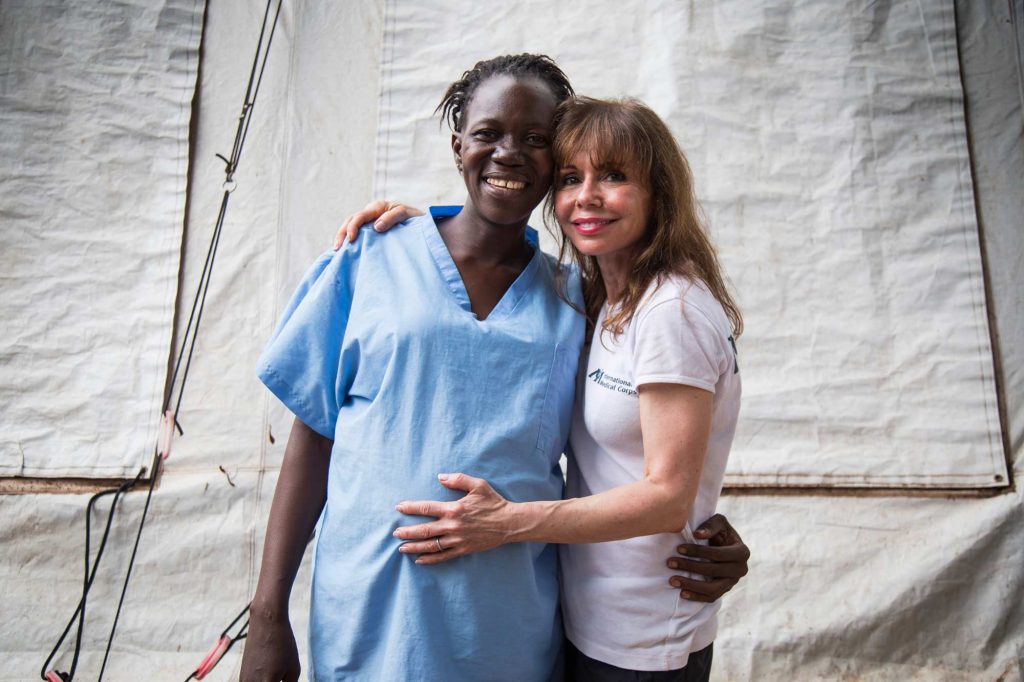I rubbed a lot of bellies last week, had a lot of hugs, did a lot of newborn cuddling. My kind of week – but with a very moving twist. Because it happened in Sierra Leone.
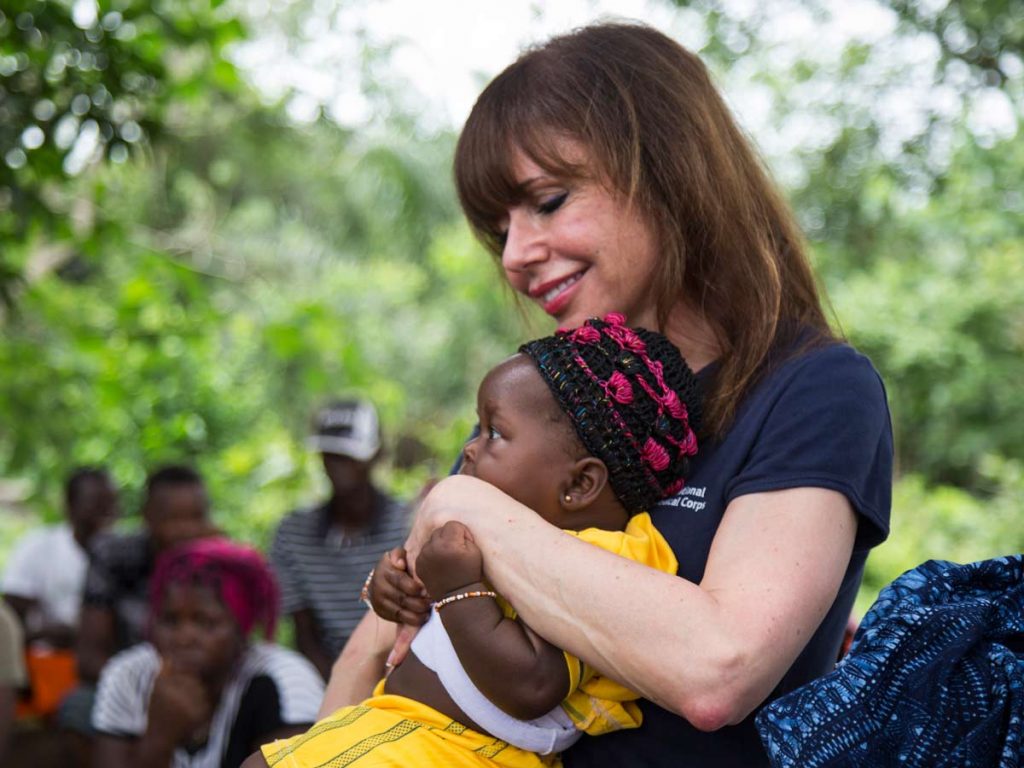
Our Week in Sierra Leone
This beautiful West African nation has suffered terribly over recent years – first through a brutal decade-long civil war, then through the Ebola crisis, which left thousands dead and countless children orphaned.
Erik and I came with International Medical Corps, the organization that helped spearhead the Ebola response and is still committed both to ongoing care of survivors and supporting a health care system left devastated by the crisis. We came to see how this devastation was disproportionately impacting the most vulnerable – moms and babies.
Far too many moms die giving life in Sierra Leone. With 1,360 maternal deaths per 100,000 live births, its maternal mortality rate is among the highest in the world – nearly 100 times the U.S. maternal mortality rate.
If motherhood is the ultimate sisterhood – as I always say it is – then our sisters are at risk.
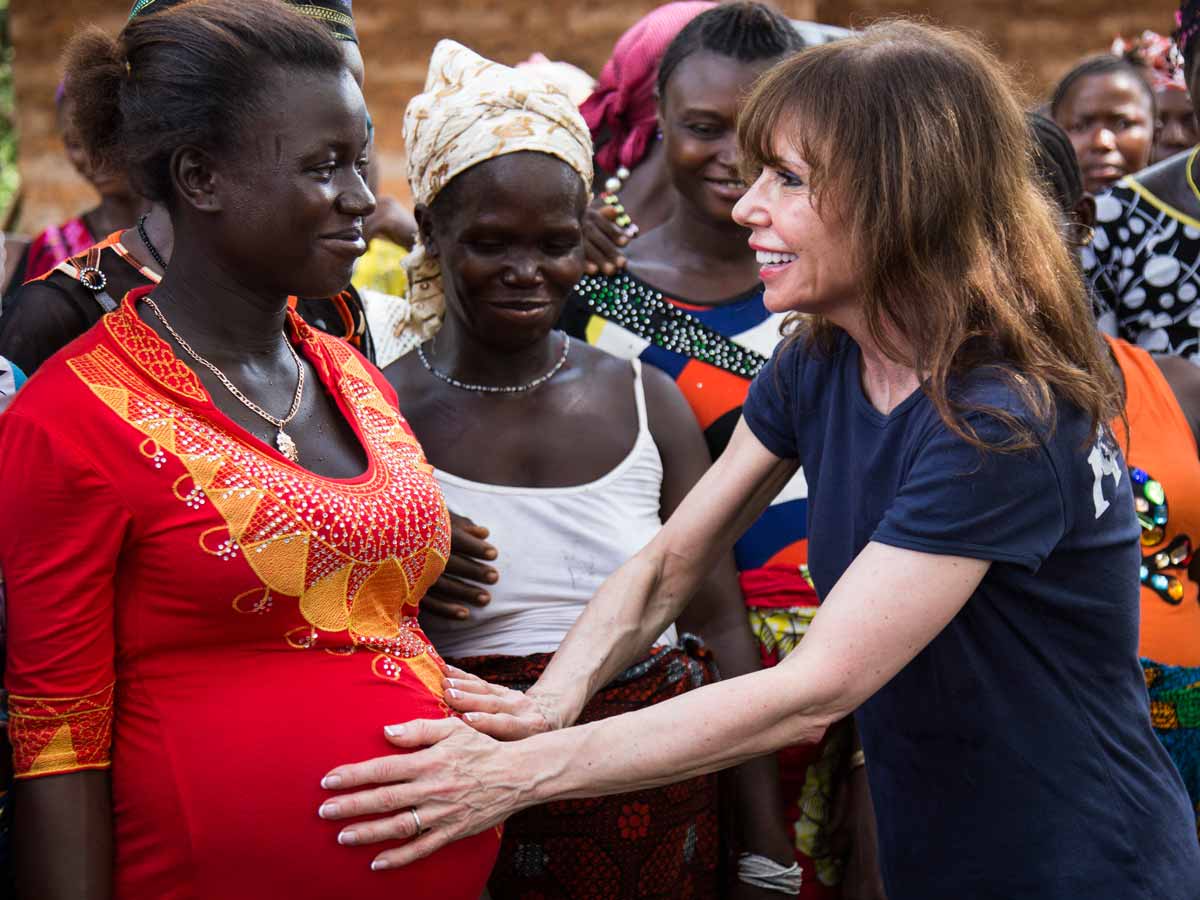
Belly Women
In Sierra Leone, expectant moms are called “belly women” – a phrase I found as irresistible as the bellies themselves (don’t worry – I asked about cultural taboos before I went in for the rubs!). Belly women wear their baby bumps proudly and with extraordinary grace. But as hard as pregnancy can be under the best of circumstances, it’s harder still in remote villages of Sierra Leone, where belly women must work the fields, carry heavy loads to market balanced on their heads and backs, and walk many miles to access basic health care for themselves and their babies. There is no electricity or plumbing, no running or safe-to-drink water, no escape from the sweltering heat and humidity – or the often torrential downpours. But there is a strong sense of community and shared responsibility – stronger still, perhaps, since Ebola ravaged so many families in so many villages.
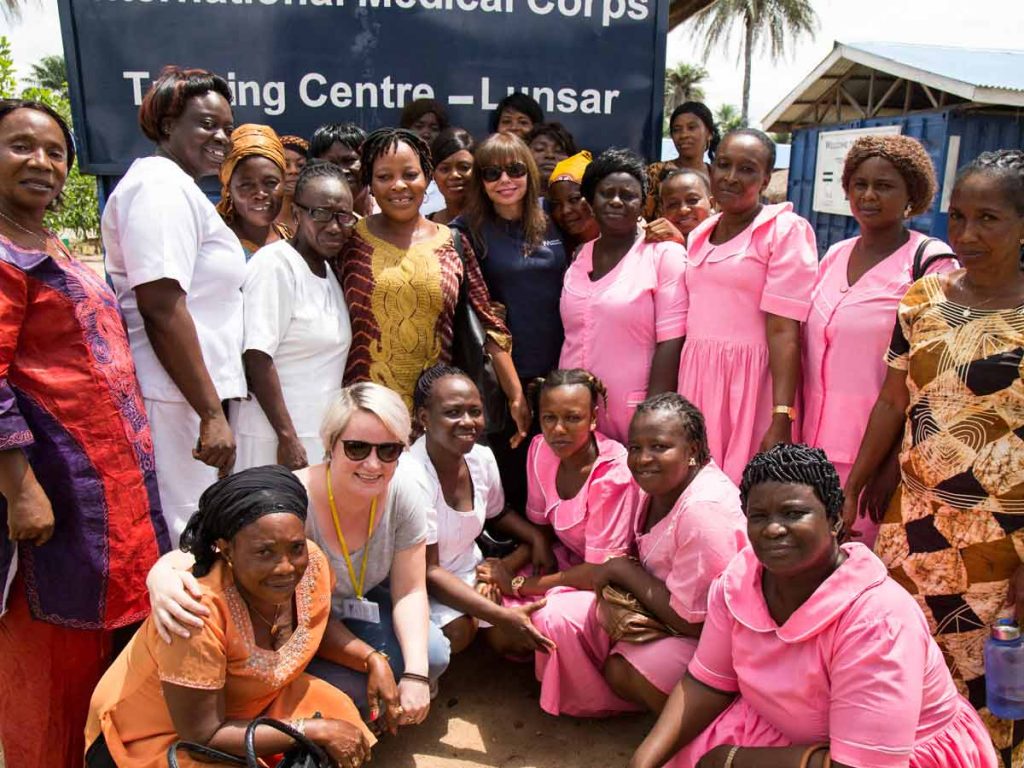
Port Loko Training
Being pregnant and giving birth have always come with risks in Sierra Leone, especially in villages where there are no health facilities, no sanitation, no skilled birth attendants. International Medical Corps has stepped in – as they have in South Sudan, Afghanistan, and other regions at risk – to offer training to nurses, midwives, and maternal child health aides, as well as to traditional birth attendants. I was able to attend one of these trainings in the Port Loko district with this amazing group of care providers, all of them eager to build on their skills, to learn how to save the lives of moms-to-be who come to them for care. They are among the 50 health providers receiving skills training from International Medical Corps (nurses in pink, midwives in white—those in traditional garb were honoring Ramadan that day).
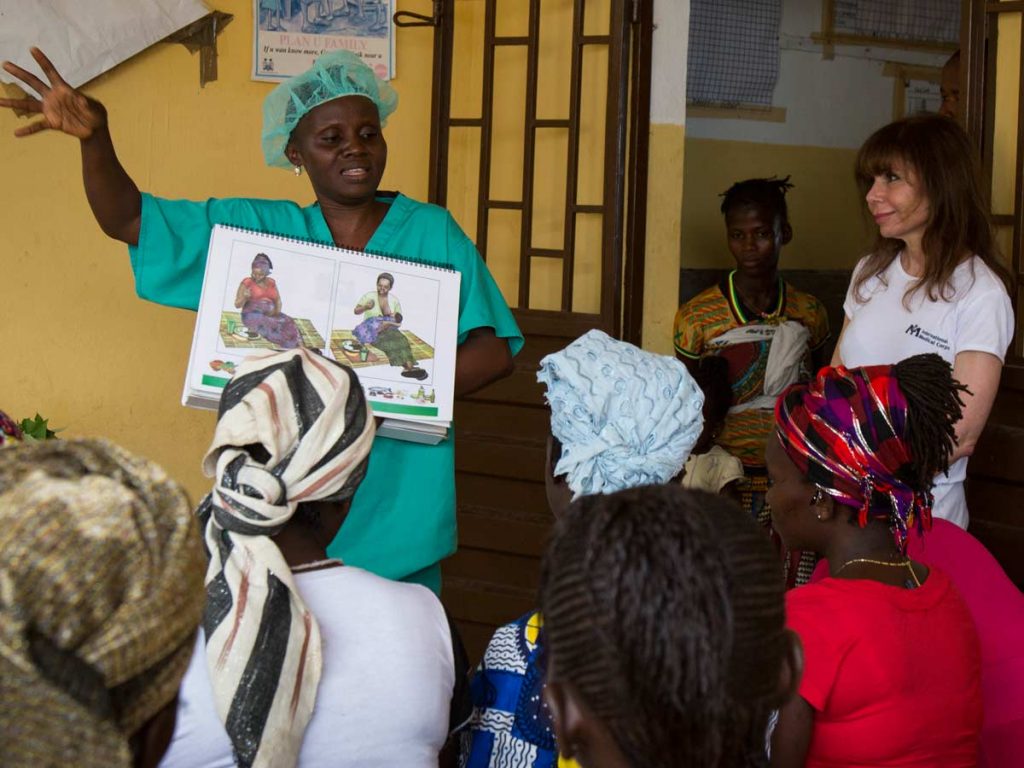
Getting Women Prenatal Care
Cultural taboos, superstitions, and mistrust of health care (heightened during the Ebola crisis, when so many of those who sought medical care died) continue to keep some belly women away from clinics – but community workers, also trained by International Medical Corps, are spreading the prenatal care message. Moms spread it, too, thanks to pregnant women’s support groups created by International Medical Corps, which encourage camaraderie and information-sharing among expectant moms. As of June 2016, 28 mothers were members of this facility’s group, in Kathanta Bana, where we were lucky enough to sit in on an inspiring and very spirited educational session. Since literacy is extremely low, nurses use song, dance, and pictures to teach the warning signs moms-to-be should watch out for and come to clinic to report – like headache, bleeding, and severe swelling. Questions are asked and answered, stories are shared, and a healthy meal is prepared and eaten together. Each mom is also seen individually by a nurse or aide, with progress noted on a small card carried to appointments.
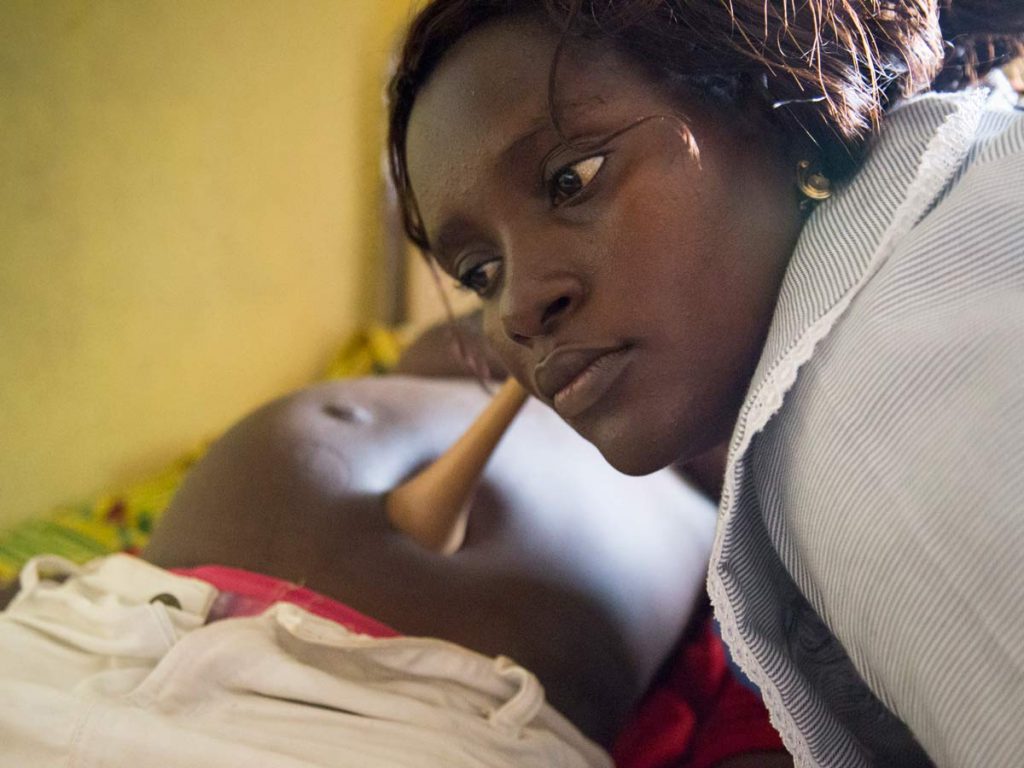
Maternal Check-ups
This mama came to the group session with contractions, close to term. She was weak and dehydrated (dressed far too warmly in the heat), so she was brought in for a closer look and so that she could rest. Here, the MCH (maternal child health) aide checks the baby’s heartbeat with one of the only tools the clinic has: a fetoscope. Checking baby’s position, sizing up development, is all done by hand. No electricity, no technology – just care provided by dedicated health workers trained by International Medical Corps.
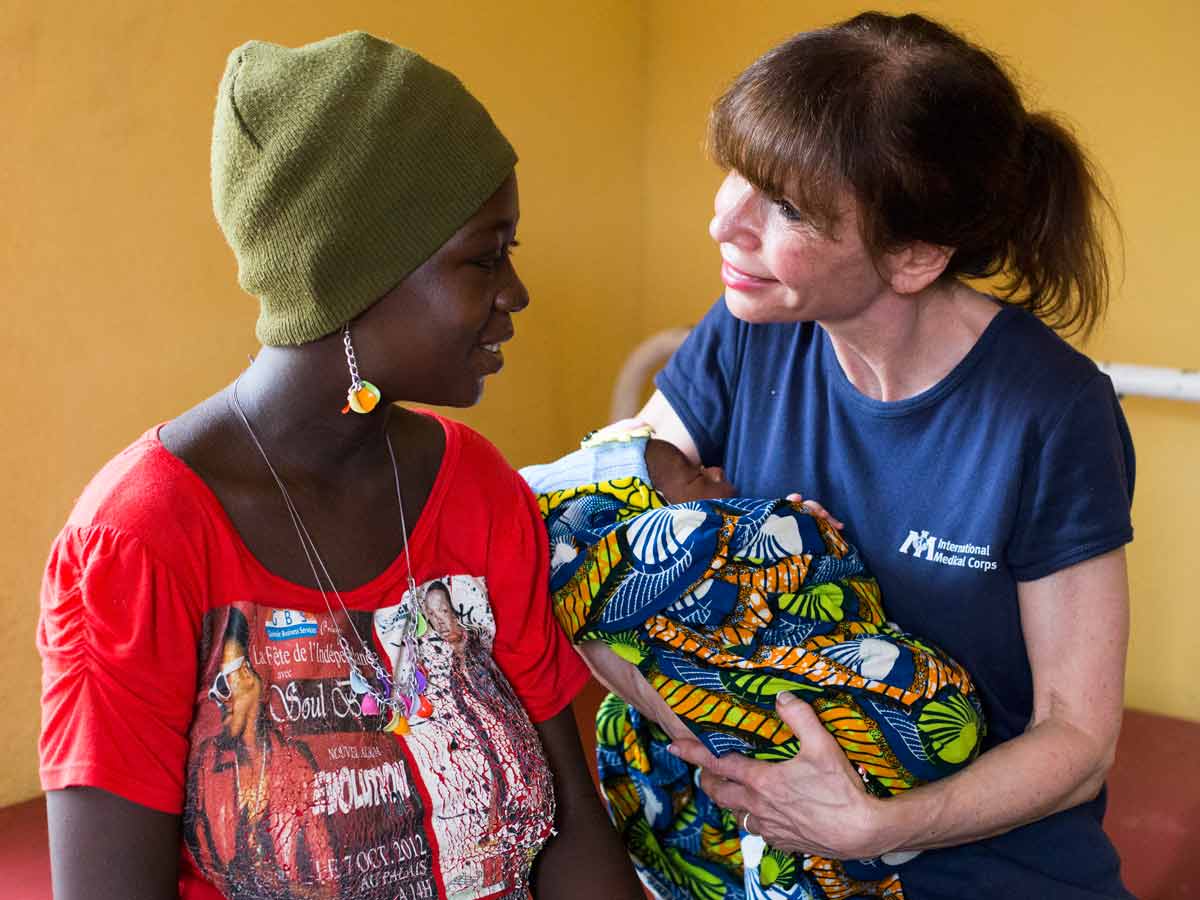
Serving New Moms
The health facility in Rogbalan serves 12 villages and about 3,400 people. We were welcomed by many of them when we visited – including Mabinty Sesay and her newborn son, Dauda Kamara. Mabinty had delivered Dauda at the facility just a week before – and both mama and baby were doing well (breastfeeding was going well, too!).
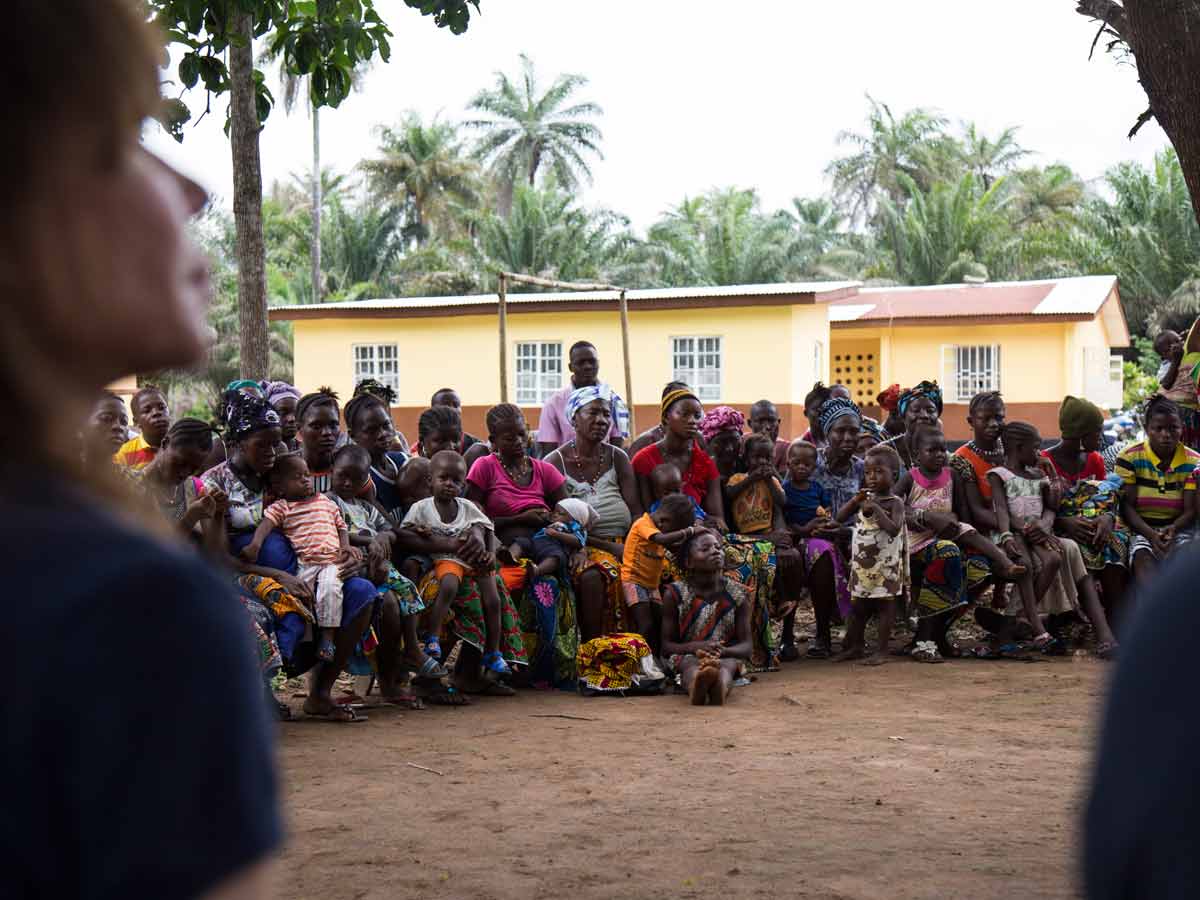
Exciting Rehabilitation
The team at Rogbalan was excited to show off their newly rehabilitated maternity facilities (one room for pregnancy care, one for labor and delivery) and newly built incinerators designed to dispose of medical waste and human waste hygienically (placentas included). There was also a new solar panel to keep the supply of vaccines refrigerated and fresh, and three latrines. Yes, they’re essentially holes in the ground, but they represent a giant step up in sanitation, helping prevent the spread of disease. All of this made a reality with help from International Medical Corps.
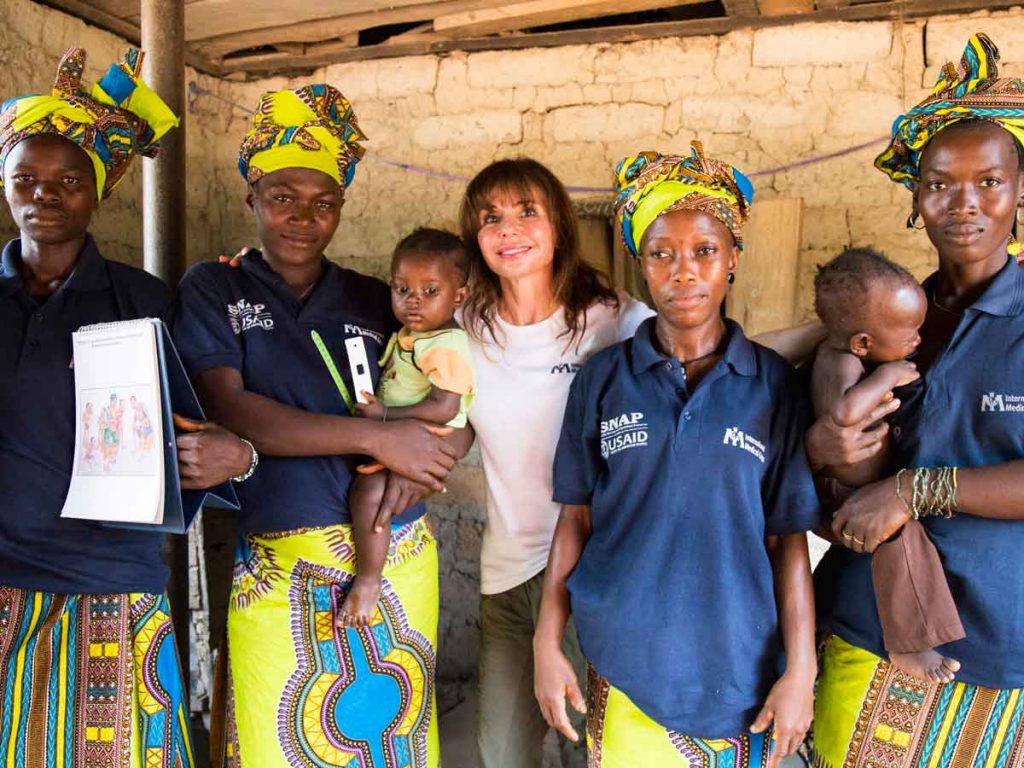
Lead Mothers
Moms helping moms – that’s the idea behind International Medical Corps’ mother care groups. I first saw this program at work in the camps of South Sudan last April: moms who spread the word about safe pregnancy and delivery practices, nutrition, immunization, and more. Not surprisingly, it works (who “gets” a mom like another mom?). Here in Maforika village, where International Medical Corps is implementing the USAID-funded Sustainable Nutrition Agriculture Program (SNAP), I saw it again. These “lead mothers” share health messages, do nutrition teaching (including showing other moms how to prepare safe supplemental food for their babies after 6 months of exclusive breastfeeding) and screen for malnutrition by measuring tiny arms. They also do counseling about family planning. In this remarkable program, fathers were included, too. A group of 7 dads in the communities, themselves engaged in childcare and housework, are powerful advocates for gender equality in an area of the world where women traditionally do all the family-rearing work (in addition to their work in the fields). These dads, too, go door-to-door in the villages, too, sharing messages about everything from family planning to diaper changing!
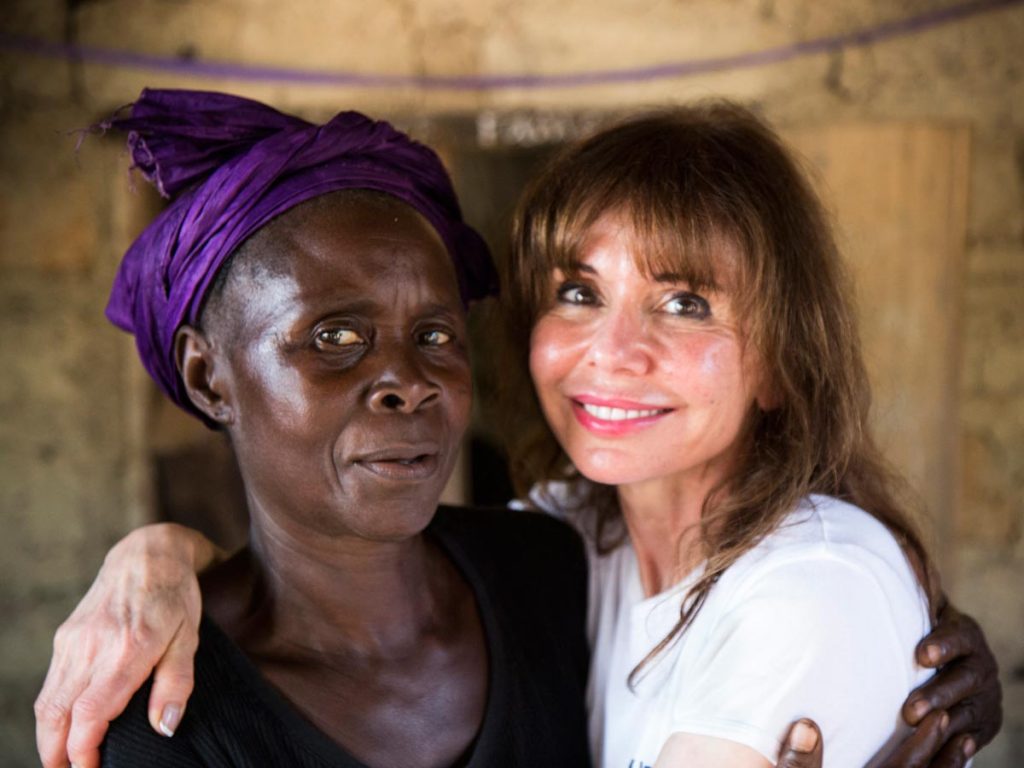
Granny Groups
We grannies have to stick together – or at least, hug together! This one in the Maforika village in Sierra Leone’s Tonkolili district was an awesome hugger – clearly from many years of nurturing practice. She came running up to us as we were seeing the Mother Care Group in action doing nutrition screenings and lobbied the International Medical Corps team for “Granny Groups” too! Actually, an incredible idea – one the team hopes to implement. After all, who better to look after the community than the grandmas? Of course, Erik put in a word for “Grandpa Groups” also.
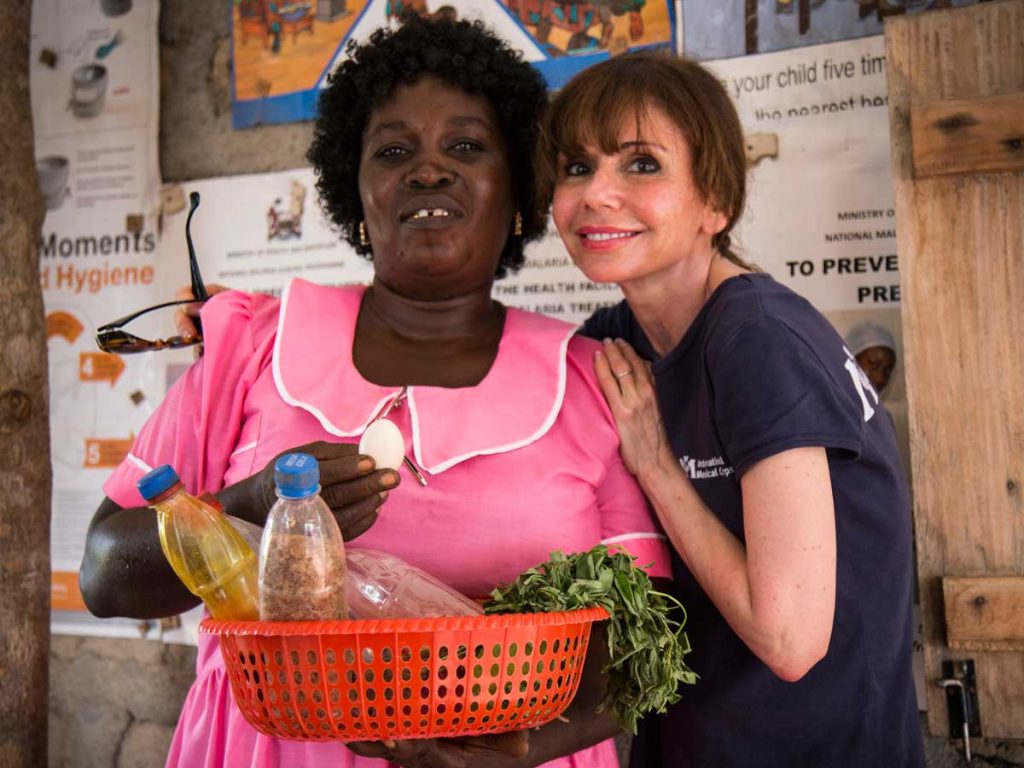
Nurse Adama
How I love this woman! Nurse Adama, one of the health care providers who attend the International Medical Corps training, is passionate, compassionate, and so huggable I pretty much couldn’t stop. In her health facility in Masamboi, built by villagers, she cares for and delivers all of the belly women who come in from outlying villages, working on her own with one tiny bed, no safe water, next to no equipment. When a woman comes in during labor, her family must be dispatched to gather water from miles away to use during the delivery. Yet, Adama saves lives daily, thanks to her skills and training. Here she showed us the basket of foods she uses to offer mamas-to-be basic nutrition education: rice, potato leaves, ground peanuts, dried fish, palm oil. A harder sell – even though chickens roam freely through the villages – is egg. Adama tells the mothers the importance of eating eggs for protein, but local tradition warns pregnant women against eating eggs or feeding eggs to their children for fear of turning them into thieves.
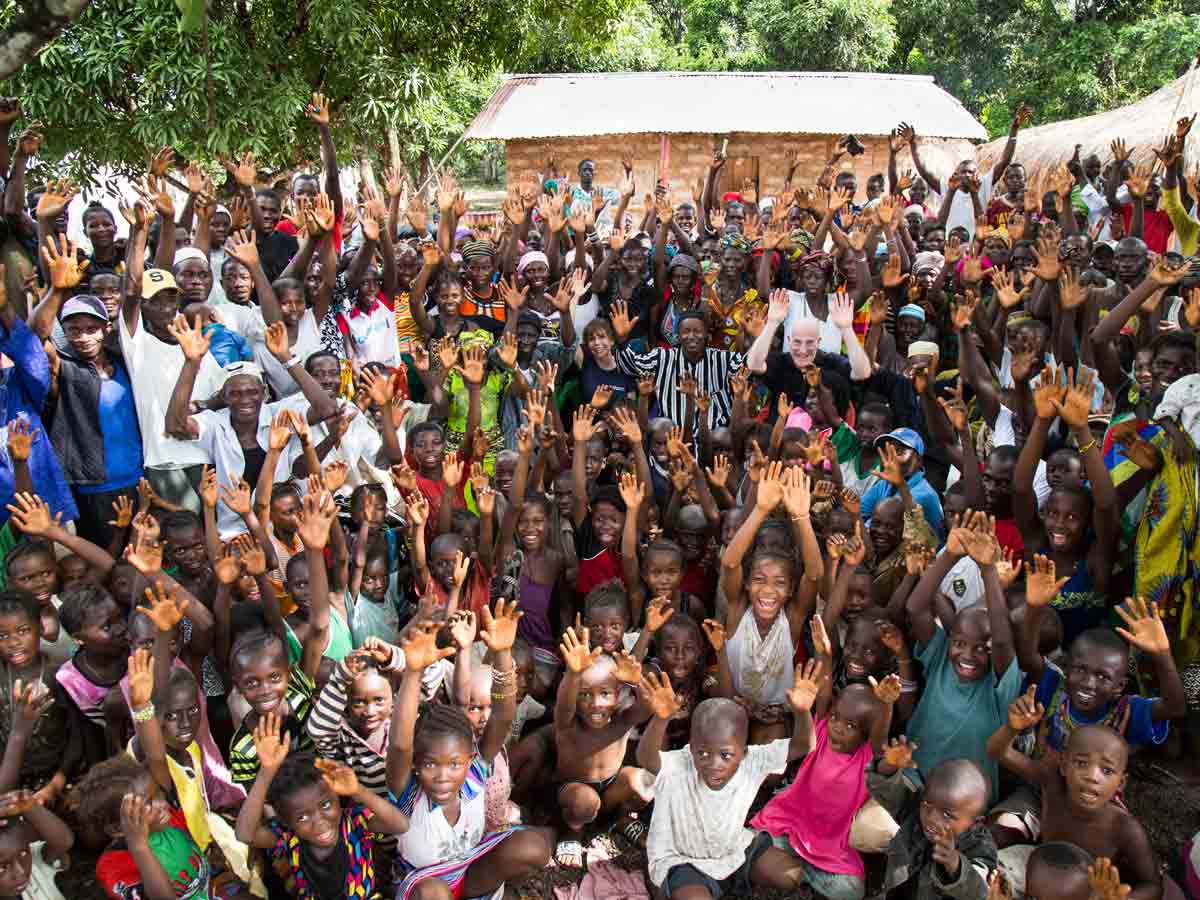
Hopeful for a Better Future
The people of Sierra Leone have suffered terribly and still struggle to recover from the tragedy of the Ebola crisis. They lack so many of the basic necessities and conveniences we enjoy: safe water, electricity, sanitation, transportation, ready access to healthy food, or to any food at all. But in the face of those seemingly overwhelming challenges, these are the faces that greeted us wherever we went. Beautiful, proud, welcoming, joyful, and most of all, hopeful for a better future for their little ones. Like I always say, healthy futures start with healthy beginnings – and thanks to Adama and all the other remarkable nurses, midwives, and community leaders delivering health care to those who need it the most, those futures are looking a lot brighter.
